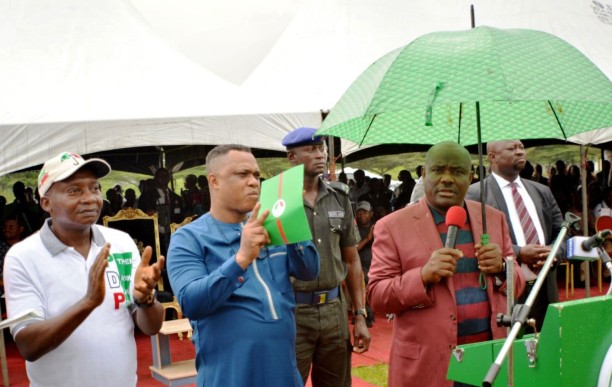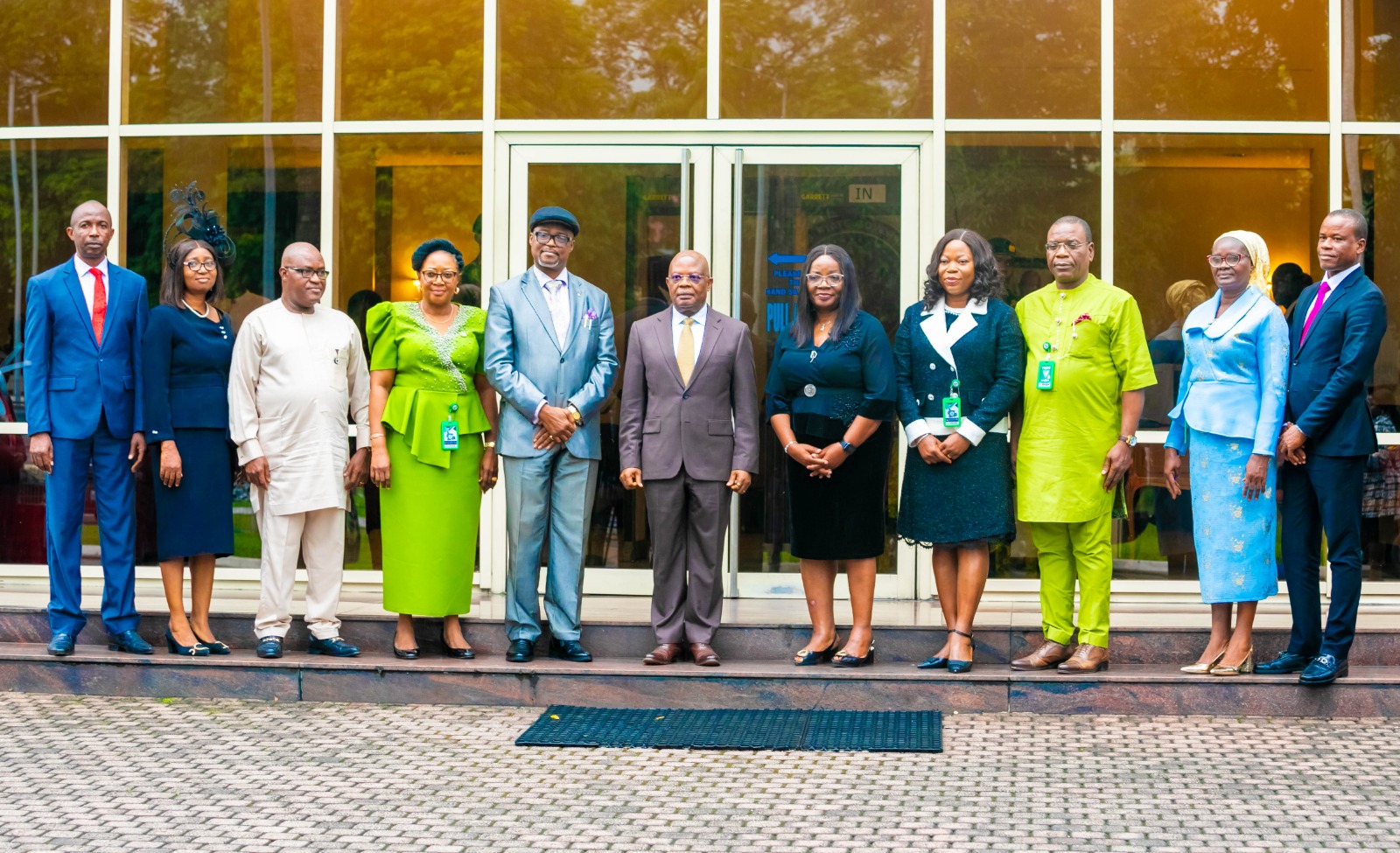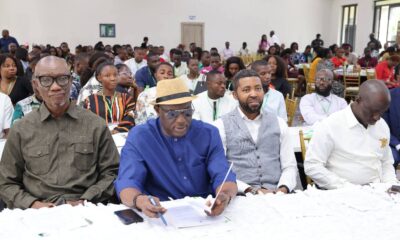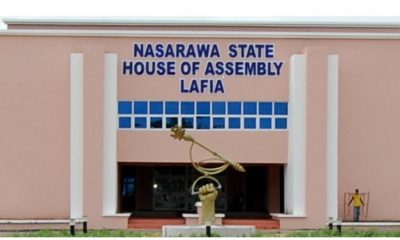Featured
Fears Over Wike’s Assassination …As Police Withdraw Gov’s CSO …RSG Raises Alarm

The Rivers State Government has expressed fears over the possible assassination of Chief Nyesom Ezebunwo Wike before the December 10 rerun elections in Rivers State.
The State Commissioner for Information and Communications, Dr. Austin Tam-George, who raised the alarm said the safety of the Chief Executive of Rivers State cannot be guaranteed following the criminal withdrawal of his Chief Security Officer days before the rerun elections in Rivers State.
Dr. Tam-George described the withdrawal as criminal, vexatious and undemocratic especially now that all security breaches in the state will be blamed on the State Chief Executive.
Meanwhile, the Rivers State Governor, Chief Nyesom Wike has revealed that in continuation of the Police High Command’s plot to assassinate him; his Chief Security Officer (CSO) has been withdrawn.
The governor said the CSO was withdrawn on Monday alongside several other policemen from Government House, Port Harcourt.
Wike added that the Police High Command also effected the transfer of 500 senior and junior police officers from the state, and posted to the state, policemen saddled with ulterior agenda.
He spoke on Monday in Khana Local Government Area when he led Peoples Democratic Party (PDP) candidates to campaign in Babbe, Ken-Khana and Nyor-Khana districts.
The state chief executive officer explained that with the obvious partisanship of the police and its plot to compromise his security, he was looking up to God and the youth to protect him.
The governor said the Police High Command withdrew his chief security officer after the Assistant Commissioner of Police, Steven Hasso, attempted to invade Government House, Port Harcourt alongside All Progressives Congress (APC) thugs without success.
He said that despite the partisanship of the leadership of the police, the Inspector General of Police has no vote and cannot vote in Rivers State.
“Does the Inspector-General of Police vote in Rivers State? The APC can take the IG. For me, I will remain with the people”, Wike said.
He charged the youth in all the locations where elections would hold to monitor results from polling units to the collation centres, adding that the youth must vehemently resist anyone trying to smuggle in cooked results.
He declared Wednesday to Friday as fasting days for the December 10, rerun elections, and urged the people of the state to use the three days to pray for peaceful and credible elections.
The governor called on Ogoni people to vote for all PDP candidates during the rescheduled legislative re-run elections.
In his remarks, Senator Lee Maeba urged Ogoni people to vote Senator Olaka Nwogu to represent the Rivers South-East Senatorial District, alleging that Senator Magnus Abe and former Governor, Chibuike Rotimi Amaechi, conspired to deny Ogoni people projects.
In another development, the ruling All Progressives Congress squared up with the Peoples Democratic Party in separate statements yesterday over an alleged interference with Governor Nyesom Wike’s security apparatus.
The major political parties tore into each other a day after Governor Wike told newsmen that his Chief Security Officer and other key personnel in his detail had been removed.
Their crossfire, which comes as campaign intensifies for the December 10 legislative elections, persisted despite police’s insistence that they were unaware of the development.
The latest controversy is the second time Mr. Wike will make issue out of his security.
On November 26, the governor openly scolded the Rivers State Commissioner for Police for allegedly ordering a drawdown of his security personnel.
But in a statement yesterday morning, the PDP said it had been duly informed that a majority of the security personnel attached to the governor had been withdrawn.
Dayo Adeyeye, spokesman for the interim leadership of the PDP, said the alleged withdrawal was part of a purported plot to weaken Governor Wike’s security and leave him vulnerable to fatal attacks.
“The method being applied by the APC in the Rivers re-run elections is to use security agencies to withdraw the security details of the governor and expose him to danger of being assassinated in order to cow him to succumb to their rigging plans,” Mr. Adeyeye said.
Consequently, the PDP gave the police and the State Security Service three days to restore the governor’s detail.
“We, therefore, call on the Inspector General of Police, Ibrahim Idris and the Director General of State Security Services, Lawal Daura to, as a matter of urgency, restore all the security details of Governor Nyesom Wike and to secure Government House, Port Harcourt, Rivers State.
“Failure to do this before the Saturday December 10 rerun elections is indirectly calling on Rivers people to resort to self- help.’’
Featured
Rivers A Strategic Hub for Nigeria’s Blue Economy -Ibas …Calls For Innovation-Driven Solutions

The Administrator of Rivers State, Vice Admiral (Rtd.) Ibok-Ete Ibas, has emphasized the need for innovation-driven strategies, strategic partnerships, and firm policy implementation to fully harness the vast potential of the blue economy.
Speaking during a courtesy visit by participants of Study Group 7 of the Executive Course 47 from the National Institute for Policy and Strategic Studies (NIPSS) at Government House, Port Harcourt, on Monday, Ibas highlighted the importance of diversifying Nigeria’s economy beyond oil by leveraging maritime resources to create jobs, enhance food security, strengthen climate resilience, and generate sustainable revenue.
The Administrator, according to a statement by his Senior Special Adviser on Media, Hector Igbikiowubo, noted that with coordinated efforts and innovative solutions, the blue economy could serve as a catalyst for inclusive growth, economic stability, and long-term environmental sustainability.
“It is estimated that a fully developed blue economy could generate over $296 million annually for Nigeria, spanning fisheries, shipping and logistics, marine tourism, offshore renewable energy, aquaculture, biotechnology, and coastal infrastructure,” he stated.
“We must transition from extractive practices to regenerative, inclusive, and innovation-driven solutions. This requires political cohesion, intergovernmental collaboration, robust infrastructure, and institutional capacity—all of which must be pursued with urgency and intentionality,” he added.
Ibas urged sub-national governments, particularly coastal states, to domesticate the national blue economy framework and develop tailored strategies that reflect their comparative advantages.
He stressed that such efforts must be guided by disciplined planning, regulation, and investment to maximize the sector’s potential.
Highlighting Rivers State’s pivotal role, the Administrator outlined its strategic advantages as follows:
•Nearly 30% of Nigeria’s total coastline (approximately 853km)
•Over 40% of Nigeria’s crude oil and gas output
•More than 33% of the country’s GDP and foreign exchange earnings
•416 of Nigeria’s 1,201 oil wells, many located in marine environments
•Two of Nigeria’s largest seaports, two oil refineries, and the Nigerian Liquefied Natural Gas (NLNG) terminal in Bonny Island—one of Africa’s most advanced gas facilities
Despite these opportunities, Ibas acknowledged challenges such as pollution, coastal erosion, illegal oil refining, unregulated fishing, inadequate infrastructure, and maritime insecurity.
He reaffirmed his administration’s commitment to institutional reforms, coastal zone management, and inter-agency collaboration to build a governance structure that supports a sustainable blue economy.
“Sustainability must be embedded in our development models from the outset, not as an afterthought. We are actively exploring partnerships in maritime education, aquaculture development, port modernization, and renewable ocean energy. We welcome knowledge-sharing engagements like this to refine our strategies and enhance implementation,” he said.
He urged the NIPSS delegation to ensure their findings translate into actionable recommendations that address the sector’s challenges.
Leader of the delegation, Vice Admiral A.A. Mustapha, explained that the visit aligns with their strategic institutional tour mandate on the 2025 theme: “Blue Economy and Sustainable Development in Nigeria: Issues, Challenges, and Opportunities.”
The group is engaging stakeholders to deepen understanding of policy efforts and institutional roles in advancing sustainable development through the blue economy.
Featured
INEC To Unveil New Party Registration Portal As Applications Hit 129

The Independent National Electoral Commission (INEC) has announced that it has now received a total of 129 applications from associations seeking registration as political parties.
The update was provided during the commission’s regular weekly meeting held in Abuja, yesterday.
According to a statement signed by the National Commissioner and Chairman of the Information and Voter Education Committee, Sam Olumekun, seven new applications were submitted within the past week, adding to the previous number.
“At its regular weekly meeting held today, Thursday 10th July 2025, the commission received a further update on additional requests from associations seeking registration as political parties.
“Since last week, seven more applications have been received, bringing the total number so far to 129. All the requests are being processed,” the commission stated.
The commission revealed the introduction of a new digital platform for political party registration. The platform is part of the Party Financial Reporting and Auditing System and aims to streamline the registration process.
Olumekun disclosed that final testing of the portal would be completed within the next week.
“INEC also plans to release comprehensive guidelines to help associations file their applications using the new system.
“Unlike the manual method used in previous registration, the Commission is introducing a political party registration portal, which is a module in our Party Financial Reporting and Auditing System.
“This will make the process faster and seamless. In the next week, the commission will conclude the final testing of the portal before deployment.
“Thereafter, the next step for associations that meet the requirements to proceed to the application stage will be announced. The commission will also issue guidelines to facilitate the filing of applications using the PFRAS,” the statement added.
In the meantime, the list of new associations that have submitted applications has been made available to the public on INEC’s website and other official platforms.
Featured
Tinubu Signs Four Tax Reform Bills Into Law …Says Nigeria Open For Business

President Bola Tinubu yesterday signed into law four tax reform bills aimed at transforming Nigeria’s fiscal and revenue framework.
The four bills include: the Nigeria Tax Bill, the Nigeria Tax Administration Bill, the Nigeria Revenue Service (Establishment) Bill, and the Joint Revenue Board (Establishment) Bill.
They were passed by the National Assembly after months of consultations with various interest groups and stakeholders.
The ceremony took place at the Presidential Villa, yesterday.
The ceremony was witnessed by the leadership of the National Assembly and some legislators, governors, ministers, and aides of the President.
The presidency had earlier stated that the laws would transform tax administration in the country, increase revenue generation, improve the business environment, and give a boost to domestic and foreign investments.
“When the new tax laws become operational, they are expected to significantly transform tax administration in the country, leading to increased revenue generation, improved business environment, and a boost in domestic and foreign investments,” Special Adviser to the President on Media, Bayo Onanuga said on Wednesday.
Before the signing of the four bills, President Tinubu had earlier yesterday, said the tax reform bills will reset Nigeria’s economic trajectory and simplify its complex fiscal landscape.
Announcing the development via his official X handle, yesterday, the President declared, “In a few hours, I will sign four landmark tax reform bills into law, ushering in a bold new era of economic governance in our country.”
Tinubu made a call to investors and citizens alike, saying, “Let the world know that Nigeria is open for business, and this time, everyone has a fair shot.”
He described the bills as not just technical adjustments but a direct intervention to ease burdens on struggling Nigerians.
“These reforms go beyond streamlining tax codes. They deliver the first major, pro-people tax cuts in a generation, targeted relief for low-income earners, small businesses, and families working hard to make ends meet,” Tinubu wrote.
According to the President, “They will unify our fragmented tax system, eliminate wasteful duplications, cut red tape, restore investor confidence, and entrench transparency and coordination at every level.”
He added that the long-standing burden of Nigeria’s tax structure had unfairly weighed down the vulnerable while enabling inefficiency.
The tax reforms, first introduced in October 2024, were part of Tinubu’s post-subsidy-removal recovery plan, aimed at expanding revenue without stifling productivity.
However, the bills faced turbulence at the National Assembly and amongst some state governors who rejected its passing in 2024.
At the NASS, the bills sparked heated debate, particularly around the revenue-sharing structure, which governors from the North opposed.
They warned that a shift toward derivation-based allocations, especially with VAT, could tilt fiscal balance in favour of southern states with stronger consumption bases.
After prolonged dialogue, the VAT rate remained at 7.5 per cent, and a new exemption was introduced to shield minimum wage earners from personal income tax.
By May 2025, the National Assembly passed the harmonised versions with broad support, driven in part by pressure from economic stakeholders and international observers who welcomed the clarity and efficiency the reforms promised.
In his tweet, Tinubu stressed that this is just the beginning of Nigeria’s tax evolution.
“We are laying the foundation for a tax regime that is fair, transparent, and fit for a modern, ambitious Nigeria.
“A tax regime that rewards enterprise, protects the vulnerable, and mobilises revenue without punishing productivity,” he stated.
He further acknowledged the contributions of the Presidential Fiscal Policy and Tax Reform Committee, the National Assembly, and Nigeria’s subnational governments.
The President added, “We are not just signing tax bills but rewriting the social contract.
“We are not there yet, but we are firmly on the road.”
-
Niger Delta18 hours ago
C’River Hands Over Rubber Plantation to Private Company
-

 Nation16 hours ago
Nation16 hours agoHYPREP Reaffirms Support For Ogoni Youths …Organises Workshop For Undergraduates
-

 Business18 hours ago
Business18 hours agoIndustry Leaders Defend Local Content, … Rally Behind NCDMB
-

 Politics15 hours ago
Politics15 hours agoNasarawa Speaker Advocates Conducive Executive/Legislature Relations
-
Niger Delta18 hours ago
Delta Leverages On Extensive River Networks To Drive Blue Economy
-
News16 hours ago
FG Renames University of Maiduguri After Buhari …As Tinubu Pours Encomiums On Late President
-
News18 hours ago
PCRC Dismisses Claims Of Police Strike As Fake, Mischievous
-

 News15 hours ago
News15 hours agoRivers PDP Debunks Sale Of LGA Election Forms

